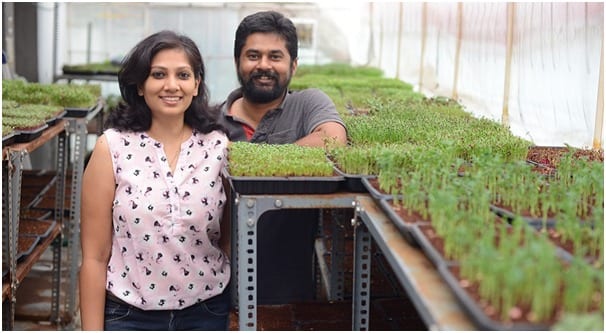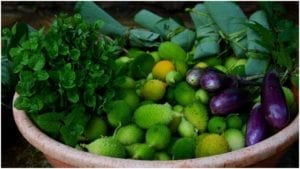Flora
Organic farming: The future of Indian Agriculture

India is an agrarian economy. Around 60 percent of people are heavily dependent upon agriculture but it contributes averagely around 15 percentage towards the Indian GDP. At the same time, the average decadal growth lies at a meager 4 percentage. It definitely raises eyebrows for many of us. So it is the need of the hour to unearth and reveal the truth for the lackadaisical growth of Indian agriculture. In this context, state initiative to promote organic farming which augurs well both for the growth and as well as for the chemical-free cultivation. Let’s have a scientific perspective which needs to be a pervasive approach in recent times and future ahead.
Organic agriculture is a holistic production management system which promotes and enhances agro-ecosystem health, including biodiversity, biological cycles, and soil biological activity. It emphasizes the use of management practices in preference to the use of on-farm inputs, taking into account regional conditions require locally adapted systems. This is accomplished by using agronomic, biological and mechanical methods, as opposed to using synthetic materials. The area under organic cultivation in India is about 5.71 million hectares (2015-16) including the cultivable area of 1.49 million hectares (26%) and rest 4.22 million hectares (74%) under forest and wild area harvest. Sikkim has been recently declared as the first organic state in India.
Ecological and Economical benefits

Organically grown vegetables
Since organic farming address soil health, human health and environmental health and is eco-friendly, it is one of the best options for sustainable crop production and crop yields. Adoption of organic agriculture in India can bring greater economic benefits to farmers and environmental growth for the nation that emphasizes on more sustainable production system crucial for achieving food security apart from maintaining natural resources.
Application of scientific approaches to organic farming practices maintain and in some cases, increase the yield in the long run. It sustains biodiversity, soil fertility, and natural ecosystem processes and other services that underpin agriculture. It allows the farmers to overcome the risk of crop failures and increased cost of production, encourages the production of healthy food and fiber of high quality. It also enhances the quality of agro-ecosystem and soil, the health of crops, animals, and people maintained through biological processes. Local resources are used in a way that minimizes losses of nutrients, biomass, and energy resources.

Organic farming in progress
Organic farming fraught with hurdles
According to the Indian Council of Agricultural Research, productivity on an average dips by 6.7 percent in the first year, and the government needs to have a plan in place to support farmers during the transition. The report on Doubling of Farmers’ Income by Ashok Dalwai committee, too, echoes the concern of the farmers who claim up to 30 percent drop in yields when embracing organic. It takes about a decade to attain pre-conversion yield levels, according to the committee report.
To ensure the marketing of organic produce, connecting farmers with the domestic and global supply chain is extremely important. But a new ICRIER study found the supply chain to be underdeveloped. As a result, the small and mid-sized farmers located in hilly regions and tribal belts find it extremely difficult to access the market.
Despite all these issues and shortcomings, organic agriculture is making inroads into the hinterlands of rural India as well as the urban individuals. They are adopting organic farming practices and reaping more benefits; the more organic and natural the product, the safer and healthier it is for us and for the environment.
































Miku Sahoo
August 22, 2019 at 10:13 PM
No doubt organic farming has numerous benifits but switching from current farming technique is the hurdle in this path. So, i think as switching from inorganic farming reduces output to nearly 30 percent, income of the farmers also decrease in the same ratio. As every farmer in India does cultivation for private consumption and if govt pushes those farmers to aplly organic farming on these fields and rest can be done as inorganic farming for income purpose. Then a time will come when the fields acting as private consumption purpose will produce as much food as they previously produced by inorganic farming and the process can be reveresed for other fields. Another way is to provide subsidy initially to those farmers who do organic farming. If you have any other suggestions please do suggest. Thank you.
Sarada
August 23, 2019 at 1:54 AM
Thanks for following and giving suitable suggestions.it seems that u have wider knowledge and keen interest in varieted fields.coming back to your queries,No doubt inorganic farming gives more output but on the flipside it will affect the productivity in the long-term and certain health and environmental issues such as cancer prone areas in bhatinda in Punjab.looking at a broader picture and sustainable agriculture govt has to make a right trade off between safety and output.